編輯:關於android開發
定義:
public final class Message implements Parcelable
Message類是個final類,就是說不能被繼承,同時Message類實現了Parcelable接口,我們知道android提供了一種新的類型:Parcel。本類被用作封裝數據的容器,是鏈表結構,有個屬性next和sPool,這兩個變量是不同的,具體什麼不同看下文。
文檔描述:
Defines a message containing a description and arbitrary data object that can be sent to a {@link Handler}. This object contains two extra int fields and an
extra object field that allow you to not do allocations in many cases.
定義一個包含任意類型的描述數據對象,此對象可以發送給Handler。對象包含兩個額外的int字段和一個額外的對象字段,這樣可以使得在很多情況下不用做分配工作。盡管Message的構造器是公開的,但是獲取Message對象的最好方法是調用Message.obtain()或者Handler.obtainMessage(), 這樣是從一個可回收對象池中獲取Message對象。
public int what; public int arg1; public int arg2; public Object obj; public Messenger replyTo; /*package*/ int flags; /*package*/ long when; /*package*/ Bundle data; /*package*/ Handler target; /*package*/ Runnable callback; // sometimes we store linked lists of these things /*package*/ Message next; private static final Object sPoolSync = new Object(); private static Message sPool; private static int sPoolSize = 0; private static final int MAX_POOL_SIZE = 50; private static boolean gCheckRecycle = true;
//從全局池中返回一個新的Message實例。在大多數情況下這樣可以避免分配新的對象。
//是一個靜態方法
public static Message obtain() {
synchronized (sPoolSync) {
if (sPool != null) {
Message m = sPool;
sPool = m.next;
m.next = null;
m.flags = 0; // clear in-use flag
sPoolSize--;
return m;
}
}
return new Message();
}
在看它一系列的重載方法:
/**
* Same as {@link #obtain()}, but copies the values of an existing
* message (including its target) into the new one.
* @param orig Original message to copy.
* @return A Message object from the global pool.
*/
public static Message obtain(Message orig) {
Message m = obtain();
m.what = orig.what;
m.arg1 = orig.arg1;
m.arg2 = orig.arg2;
m.obj = orig.obj;
m.replyTo = orig.replyTo;
m.sendingUid = orig.sendingUid;
if (orig.data != null) {
m.data = new Bundle(orig.data);
}
m.target = orig.target;
m.callback = orig.callback;
return m;
}
/**
設置target
*/
public static Message obtain(Handler h) {
Message m = obtain();
m.target = h;
return m;
}
/**
* Same as {@link #obtain(Handler)}, but assigns a callback Runnable on
* the Message that is returned.
* @param h Handler to assign to the returned Message object's <em>target</em> member.
* @param callback Runnable that will execute when the message is handled.
* @return A Message object from the global pool.
*/
public static Message obtain(Handler h, Runnable callback) {
Message m = obtain();
m.target = h;
m.callback = callback;
return m;
}
/**
* Same as {@link #obtain()}, but sets the values of the <em>target</em>, <em>what</em>,
* <em>arg1</em>, <em>arg2</em>, and <em>obj</em> members.
。。。。
* @param obj The <em>obj</em> value to set.
* @return A Message object from the global pool.
*/
public static Message obtain(Handler h, int what,
int arg1, int arg2, Object obj) {
Message m = obtain();
m.target = h;
m.what = what;
m.arg1 = arg1;
m.arg2 = arg2;
m.obj = obj;
return m;
}
還有幾個沒列舉出來,都是先調用obtain()方法,然後把獲取的Message實例加上各種參數。代碼一目了然。。。
/**
* Return a Message instance to the global pool.
* <p>
* You MUST NOT touch the Message after calling this function because it has
* effectively been freed. It is an error to recycle a message that is currently
* enqueued or that is in the process of being delivered to a Handler.
* </p>
*/
public void recycle() {
if (isInUse()) {
if (gCheckRecycle) {
throw new IllegalStateException("This message cannot be recycled because it "
+ "is still in use.");
}
return;
}
recycleUnchecked();
}
/**
* Recycles a Message that may be in-use.
* Used internally by the MessageQueue and Looper when disposing of queued Messages.
*/
void recycleUnchecked() {
// Mark the message as in use while it remains in the recycled object pool.
// Clear out all other details.
flags = FLAG_IN_USE;
what = 0;
arg1 = 0;
arg2 = 0;
obj = null;
replyTo = null;
sendingUid = -1;
when = 0;
target = null;
callback = null;
data = null;
synchronized (sPoolSync) {
if (sPoolSize < MAX_POOL_SIZE) {
next = sPool;
sPool = this;
sPoolSize++;
}
}
}
向全局池中返回一個Message實例。一定不能在調用此函數後再使用Message——它實際上已經被釋放。
getWhen:
/**
* Return the targeted delivery time of this message, in milliseconds.
*/
public long getWhen() {
return when;
}
返回此消息的傳輸時間,以毫秒為單位。
setTarget,getTarget:
//設置handler和返回handler
public void setTarget(Handler target) {
this.target = target;
}
/**
* Retrieve the a {@link android.os.Handler Handler} implementation that
* will receive this message. The object must implement
* {@link android.os.Handler#handleMessage(android.os.Message)
* Handler.handleMessage()}. Each Handler has its own name-space for
* message codes, so you do not need to
* worry about yours conflicting with other handlers.
*/
public Handler getTarget() {
return target;
}
獲取將接收此消息的Handler對象。此對象必須要實現Handler.handleMessage()方法。每個handler各自包含自己的消息代碼,所以不用擔心自定義的消息跟其他handlers有沖突。
設置一個可以是任何類型值的bundle。
/**
* Sets a Bundle of arbitrary data values. Use arg1 and arg2 members
* as a lower cost way to send a few simple integer values, if you can.
* @see #getData()
* @see #peekData()
*/
public void setData(Bundle data) {
this.data = data;
}
getData,peekData
public Bundle getData() {
if (data == null) {
data = new Bundle();
}
return data;
}
public Bundle peekData() {
return data;
}
/**向Handler發送此消息,getTarget()方法可以獲取此Handler。如果這個字段沒有設置會拋出個空指針異常。
* Sends this Message to the Handler specified by {@link #getTarget}.
* Throws a null pointer exception if this field has not been set.
*/
public void sendToTarget() {
target.sendMessage(this);
}
/** Constructor (but the preferred way to get a Message is to call {@link #obtain() Message.obtain()}).
*/
public Message() {
}
//推薦使用Message.obtain()
public void writeToParcel(Parcel dest, int flags) {
if (callback != null) {
throw new RuntimeException(
"Can't marshal callbacks across processes.");
}
dest.writeInt(what);
dest.writeInt(arg1);
dest.writeInt(arg2);
if (obj != null) {
try {
Parcelable p = (Parcelable)obj;
dest.writeInt(1);
dest.writeParcelable(p, flags);
} catch (ClassCastException e) {
throw new RuntimeException(
"Can't marshal non-Parcelable objects across processes.");
}
} else {
dest.writeInt(0);
}
dest.writeLong(when);
dest.writeBundle(data);
Messenger.writeMessengerOrNullToParcel(replyTo, dest);
dest.writeInt(sendingUid);
}
將類的數據寫入外部提供的Parcel中和從Parcel中讀取數據。
Message結束。。。。
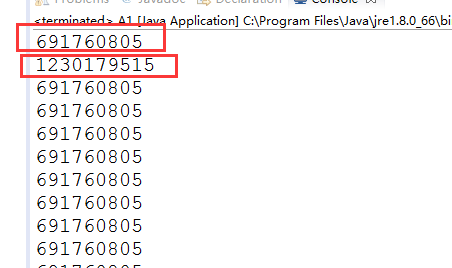 Java 單例模式,Java模式
Java 單例模式,Java模式
Java 單例模式,Java模式前言:昨天公司計劃把項目中的部分功能做出SDK的形式,供其他公司的產品使用,所以不得不重新研究一下單例模式。 為什麼單例 1
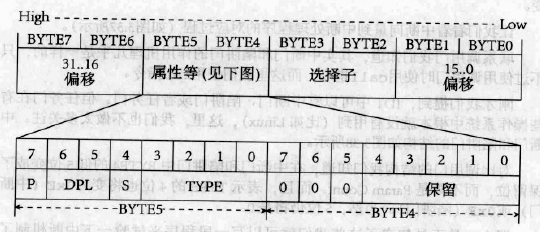 Linux內核系列—7.操作系統開發之中斷和異常,linux內核
Linux內核系列—7.操作系統開發之中斷和異常,linux內核
Linux內核系列—7.操作系統開發之中斷和異常,linux內核a.概述 中斷門和陷阱門的作用機理幾乎是一樣的,只不過使用調用門時使用call指令,而這裡我們使用int指
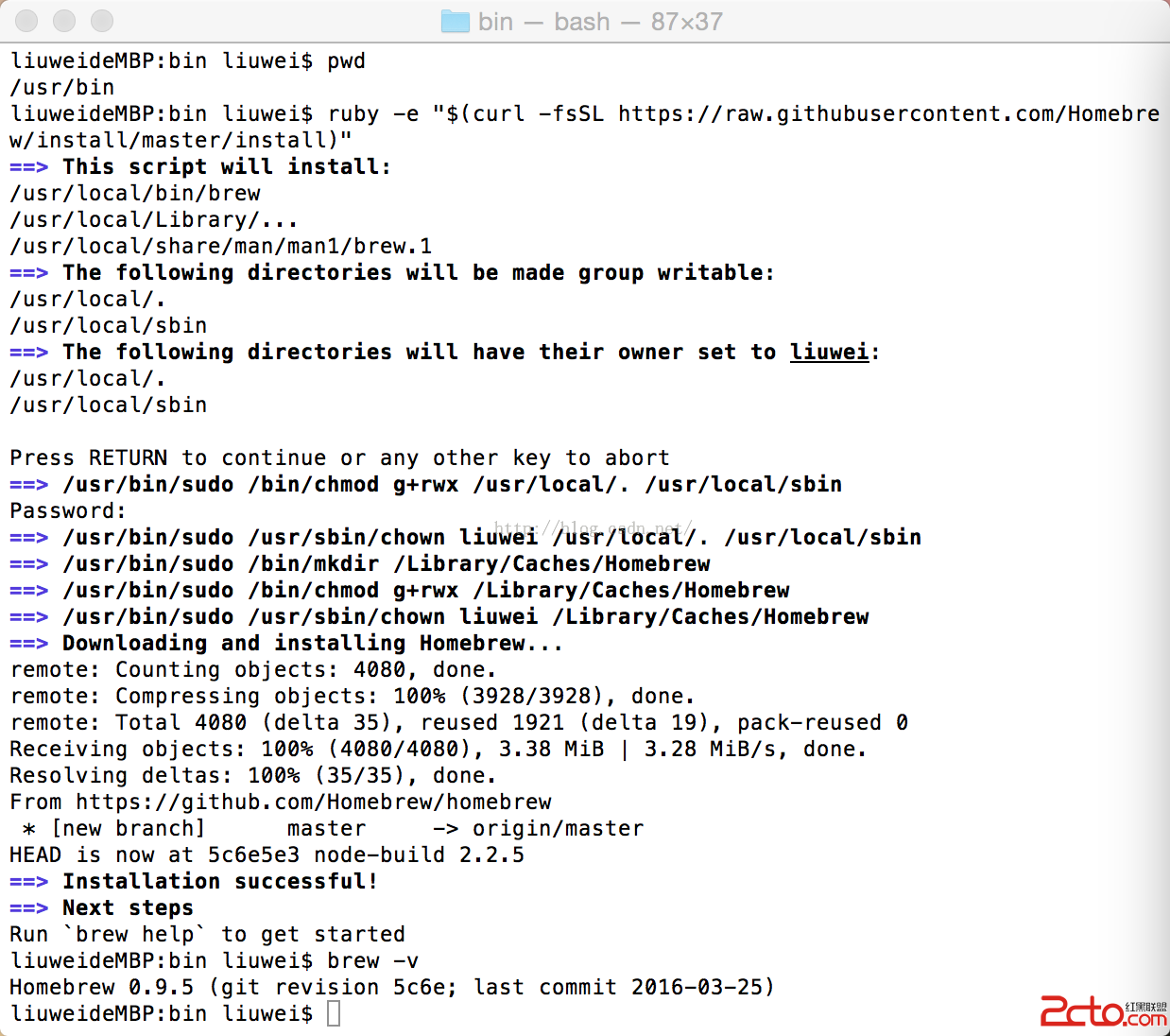 Android React-Native系列之(一)零基礎搭建React-Native開發環境
Android React-Native系列之(一)零基礎搭建React-Native開發環境
Android React-Native系列之(一)零基礎搭建React-Native開發環境 很早就聽說過大名鼎鼎的React-Native了(不大清楚的童靴們可以自行
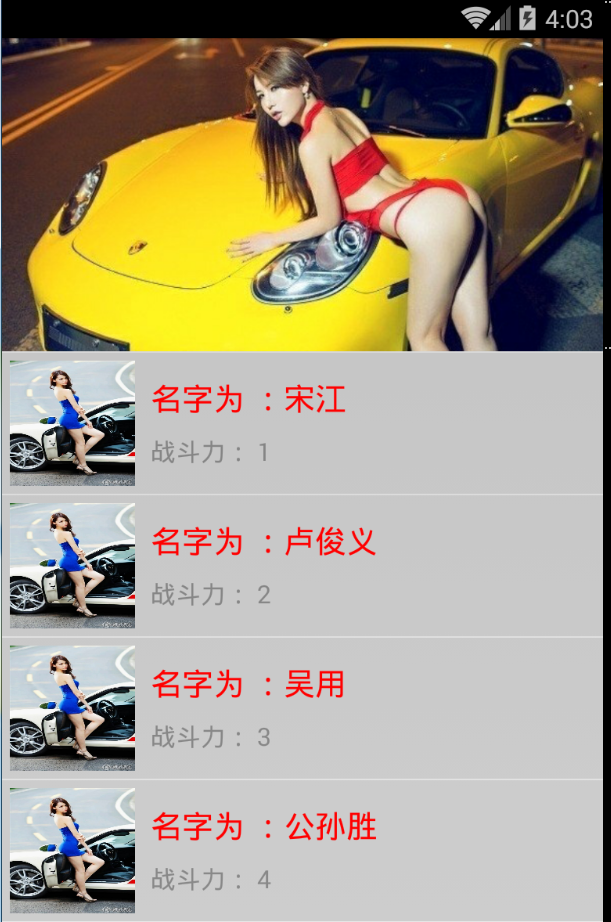 QQ視差特效和ListView側滑刪除,視差特效listview側
QQ視差特效和ListView側滑刪除,視差特效listview側
QQ視差特效和ListView側滑刪除,視差特效listview側如圖所示是效果圖,當向下拉時,圖片會被拉出來,松手後恢復。和ListView的側滑刪除 &n
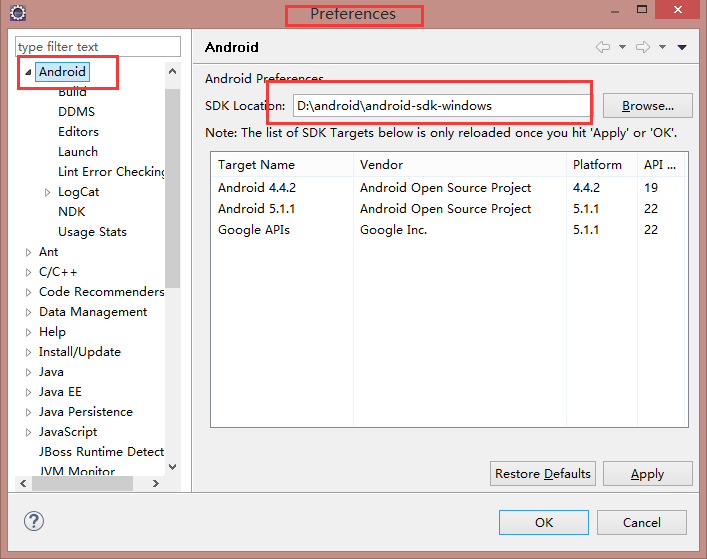 location of the android sdk has not been setup in the preferences,androidpreferences
location of the android sdk has not been setup in the preferences,androidpreferences
location of the android sdk has not